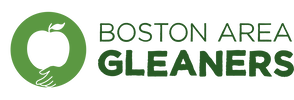|
BAG’s 2019 Apprentices, Kate Morse and Sam Balka, have spent the season learning as much as they can about gleaning, agriculture, and sustainable food systems. Each week they explore a topic through readings, videos, podcasts, and other media. In this piece, Kate reflects on the whirlwind tour she took through U.S. agricultural policy and government intervention in agricultural markets. One of the highlights from this week was an episode of Planet Money titled “Government Cheese,” which detailed the U.S. government’s attempts to help the declining dairy industry. Basically, they offered to buy cheese from farmers at a fixed price, so that if they weren’t able to sell their dairy products elsewhere, they could still make money by selling cheese to the government (cheese because it is one of the only dairy products that can be stored for any length of time). So the government became overrun with cheese. They bought so much cheese that they had to start storing it in huge caves in Kansas! However, there wasn’t nearly enough demand in the market for all that cheese (hence the farmers having to sell it to the government in the first place) so the government was faced with the problem of what to do with caves full of cheese. They turned to the food bank system, and started sending what came to be widely known as “government cheese” to food banks across the country. To me, this is just ridiculous. I wouldn’t even call this a solution to the problem of the failing industry. The government is spending tons of money to buy cheese that nobody wants and then essentially finding a way to force it on to people. On top of that, cheese isn’t a very healthy food, and could be contributing to chronic disease that the government ultimately has to spend more money on in healthcare costs. In my view, this is just turning one problem into two. In addition, the dairy industry is still failing, and dairy farmers and their families are hurting. So clearly, “government cheese” did not solve the problem. At the same time, learning about the Wisconsin Dairy Crisis really took me aback. As a dairy-wary semi-vegan, I had previously celebrated the decline of the dairy industry. While I’m certainly still glad that we’re decreasing our dairy intake for the sake of public health outcomes and the humane treatment of cows, I’d never thought about what that means for the thousands of farmers whose livelihoods depend on dairy. In the end, I’m baffled by crop insurance programs. I think the idea behind them is great, because farming is hard and risky and we should support farmers who are willing to take on that burden in order to make sure that we all have the food we need to live. However, in practice, they seem to do more harm than good—and not just with the dairy industry, as corn has undergone a similar process. We’ve ended up with way more corn than we can consume and have had to start finding ways to sneak it to consumers in disguise. As a result, we have ended up contributing to our ongoing epidemics of obesity, diabetes and heart disease. Is there really no better way to handle this? What if, instead of feebly propping up a declining industry, we found a way to redirect farmers into a new industry, such as solar or wind farming? I think we can and need to do better! By Kate Morse
1 Comment
robert bucelwicz
12/3/2019 03:16:52 pm
good assessment!
Reply
Your comment will be posted after it is approved.
Leave a Reply. |
|
|
